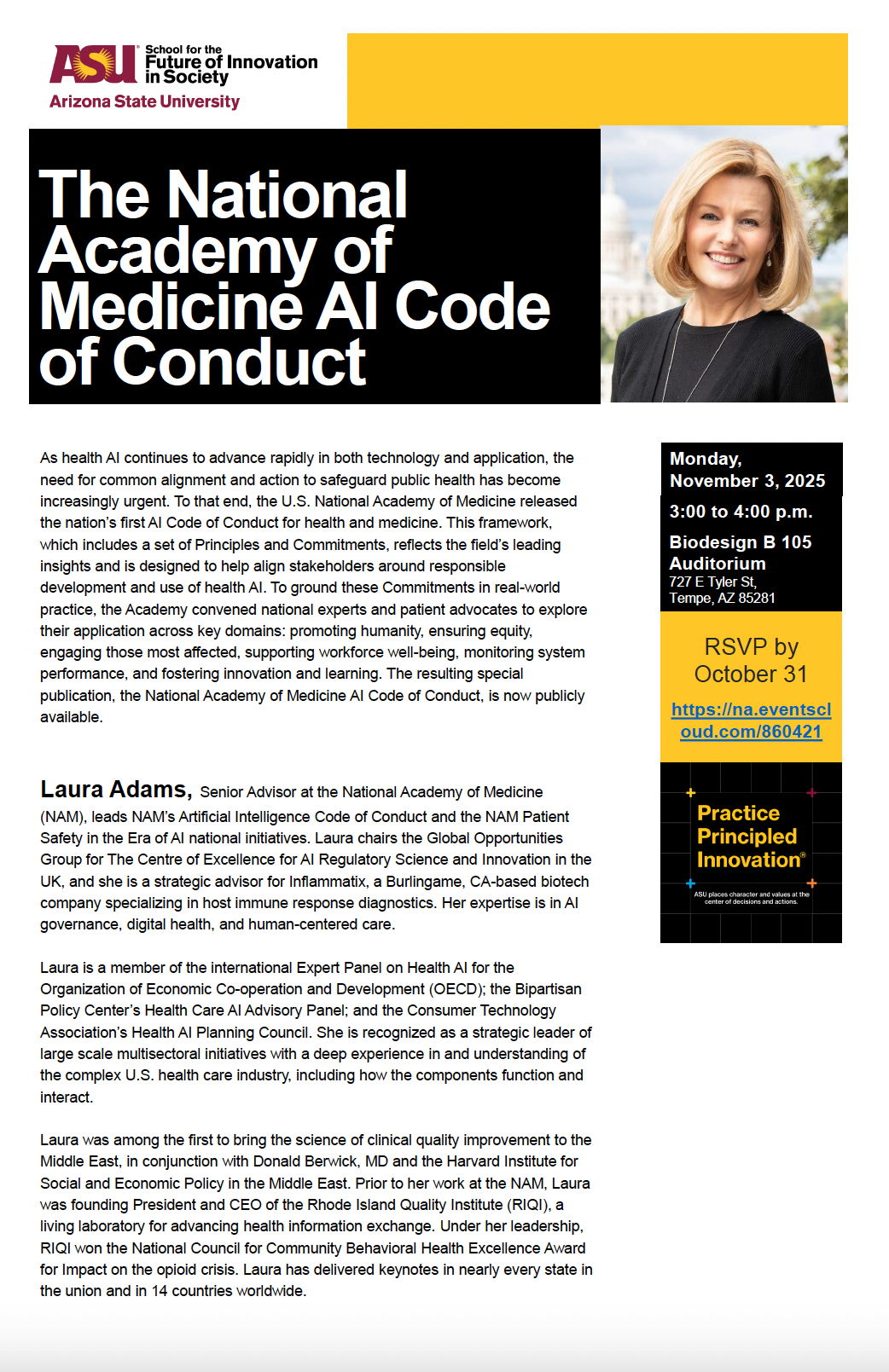The National Academy of Medicine AI Code of Conduct
As health AI continues to advance rapidly in both technology and application, the need for common alignment and action to safeguard public health has become increasingly urgent. To that end, the U.S. National Academy of Medicine released the nation’s first AI Code of Conduct for health and medicine. This framework, which includes a set of Principles and Commitments, reflects the field’s leading insights and is designed to help align stakeholders around responsible development and use of health AI. To ground these Commitments in real-world practice, the Academy convened national experts and patient advocates to explore their application across key domains: promoting humanity, ensuring equity, engaging those most affected, supporting workforce well-being, monitoring system performance, and fostering innovation and learning. The resulting special publication, the National Academy of Medicine AI Code of Conduct, is now publicly available.
I am hosting this event as part of programming sponsored by the Principled Innovation® in Health Care AI Community of Practice.
How to Survive Techno-Hellscapes: On Crip Wisdom and Critique
Everything is on fire. The supports disabled people need for survival are being decimated. The robots are coming after us, harvesting our data, surveilling us, and determining who is worthy to live. What can we do? How might the wisdom of disability elders and cross-movement organizers equip us for what’s happening and what’s to come? This roundtable brings together disability culture workers, activists, writers, and scholars to think-together about disability futures.
This event is organized and hosted by the DISCO Network and the University of Michigan Digital Studies Institute.
Imagining Innovative Digital Health Futures
The just pursuit of innovation in digital health care requires imagination, an equitable distribution of resources, and a policy environment in which flexibility and adaptability ensure that we can be responsive to patients’ and health care providers’ needs. But what happens when, as is often or even always the case, the conditions under which we pursue digital health innovation are not entirely just? How can we create innovative health futures that work for all of us when structural barriers to health and health care persist? What theoretical frameworks for action can help us to be imaginative about not only the material technologies we design but also the means by which we pursue health equity or racial justice? In other words, how should we think and be reflexive about what innovation in the world of digital health means?
Moderated by Beza Merid and co-organized by Merid and Latha Poonamallee, this April 2022 event featured Jeremy Greene, Melissa Creary, and Al O. Pacino as panelists, with Kathleen Vogel delivering opening remarks.
Illness Narratives, Networked Subjects, and Intimate Publics
This event explored the material effects/affects of illness, disability, dying, and death, across the humanities and social sciences, through the lenses of communication studies, STS, medical anthropology, and feminist and queer science studies.
Co-moderated and co-organized with Tamara Kneese, this MCC Lecture Series event at NYU featured Tom Boellstorff, Whitney Erin Boesel, Marisa Brandt, Jed Brubaker, Danya Glabau, Melissa Gregg, Tamara Kneese, Jonathan Metzl, Beza Merid, Erica Robles-Anderson, and David Serlin as as panelists, and Rayna Rapp and Faye Ginsberg as keynote speakers.
Merid and Kneese also developed this program idea into a special issue of Catalyst: Feminism, Theory, Technoscience in 2018.



